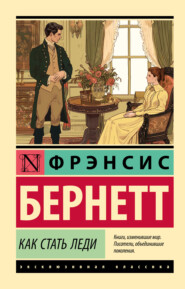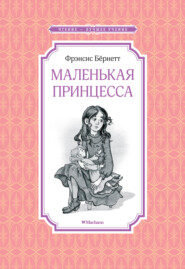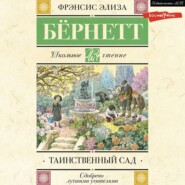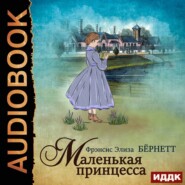По всем вопросам обращайтесь на: info@litportal.ru
(©) 2003-2024.
✖
Theo: A Sprightly Love Story
Год написания книги
2017
Настройки чтения
Размер шрифта
Высота строк
Поля
December 18. – Mr. Oglethorpe came to-night with a kind of message from Miss Gower.
From these innocent extracts, persons of an unlimited experience might draw serious conclusions; but when she made said entries, kneeling before her toilet-table, each night, our dear Theodora thought nothing about them at all. She had nothing else in particular to write about at present, so, in default of finding a better subject, she jotted down guileless remembrances of Denis Oglethorpe and the length of her trains.
But one memorable evening, on going into the sitting-room, with the pink and gold volume in her hand, she encountered Sir Dugald, who seemed to be in an extraordinary frame of mind, and withal nothing loth to meet her.
"What pretty book have you there, Theodora?" he asked, in his usual amiably uncivilized manner.
"It is my diary," Theo answered. "Lady Throckmorton gave it to me. I put things down in it."
"Oh, oh!" was the reply, taking hold of both Sabre's ears, and chuckling. "Put things down, do you? What sort of things do you put down, eh, pretty Theodora? Lovers, eh? Literary men, eh?"
Theo grew pink all over – pink as to cheeks, pink as to slim white throat, even pink as to small ears. She was almost frightened, and her fright was of a kind such as she had never experienced before. But it was not Sir Dugald she was afraid of – she was used to him. It was something new of which she had never thought until this very instant.
"Literary men, eh?" Sir Dugald went on. "Do you put down what their names are, and what they do, and how they make mistakes, and take the wrong young lady to see Norma, and Faust and Il Trovatore? Il Trovatore's a nice opera; Theo and Leonora sounds something like Theodora. It doesn't sound anything like Priscilla, does it? The devil fly away with Priscilla, I say. Priscilla isn't musical, is it, Leonora?"
Once having freed herself from him, which was by no means an easy matter, Theo flew up-stairs, tremulous, breathless, flushed. She did not stop to think. She had seen the drawing-room empty and unlighted, save by a dull fire, on her way down-stairs, so she turned to the drawing-room. She had been conscious of nothing but Sir Dugald, so she had not heard the hall-door open; and, not having heard the hall-door open, had, of course, not heard Denis Oglethorpe come in. So, in running into the fire-lit room, she broke in upon that gentleman, who was standing in the shadow, and it must be confessed was rather startled by her sudden entrance and curiously-excited face.
He stopped her short, however, collectedly enough.
"What is the matter, Theodora?" he demanded.
She slipped down upon a footstool, all in a flutter, when she saw him, she was so shaken; and then, in her sudden abasement and breathless tremor, gave vent to a piteous little half-sob, though she was terribly ashamed of it.
"I – I don't know," she answered him. "It's – it's nothing at all." But he knew better than that, and guessing very shrewdly that he was not wholly unconnected with the matter himself, questioned her as closely as was consistent with delicacy, and, in the end, after some diplomacy, and a few more of surprised, piteous, little unwilling half-sobs, gleaned a great deal of the truth from her.
"It was only – only something Sir Dugald said about you and Miss Gower, and – and something about me," she added, desperately.
"Oh!" he said, looking so composed about it that the very sight of his composure calmed her, and made her begin to think she had seen a mountain in a mole-hill. "Sir Dugald? Only Sir Dugald? What did he say, may I ask, as it – it is about myself and Miss Gower?"
Of course he might ask, but the difficulty lay in gaining any definite answer. Theodora blushed, and then actually turned a little pale, looking wondrously abased in her uncalled-for confusion; but she was not at all coherent in her explanations, which were really not meant for explanations at all.
"Il Trovatore was so beautiful!" she burst out, finally; "and so was Faust; and I had never been to the opera in all my life before, and, of course – " blushing and palpitating, but still looking at him without a shade of falsehood in her innocent, straightforward eyes; "of course, I couldn't. How could I be so silly, and vain, and presuming, as to think of – of – of – "
She stopped here, as might be expected, and, if the room had been light enough, she might have seen a shadow fall on Oglethorpe's face, as he prompted her.
"Of what?"
Her eyes fell. "Of what Sir Dugald said," she ended, in a troubled half-whisper.
There was a slight pause, in which both pairs of eyes looked down – Theodora's upon the rug of tiger-skin at her feet, Oglethorpe's at Theodora herself. They were treading upon dangerous ground, he knew, and yet in the midst of his fierce anger at his weakness, he was conscious of a regret – a contemptible regret, he told himself – that the eyes she had raised to his own a moment ago, had been so very clear and guilelessly honest in their accordance with the declaration her lips had made.
"But, my dear Theodora," he at length broke the silence by saying, carelessly, "why should we trouble ourselves about that elderly Goth, or Vandal, if you choose – Sir Dugald? Who does trouble themselves about Sir Dugald, and his amiably ponderous jocoseness? Not Lady Throckmorton, I am sure; not society in general, you must know; consequently, let us treat Sir Dugald with silent contempt, in a glorious consciousness of our own spotless innocence."
He was half uneasy under his satirical indifference; though he was so accustomed to conceal his thoughts under indifference and satire, he was scarcely sure enough of himself at this minute; but, despite this, he carried out the assumed mood pretty well.
"We have no need to be afraid of Sir Dugald's Vandalism, if we have no fear of ourselves, and, considering, as you so very justly observed, that it is quite impossible for us to be silly, and vain, and presuming toward each other. I think we must be quite safe. I believe you said it would be impossible, Theodora?"
Just one breath's space, and Theodora North looked up at him, as it were through the influence of an electric flash of recognition. There was a wild, sweet, troubled color on her cheeks, and her lips were trembling; her whole face seemed to tremble; her very eyes had a varying tremulous glow.
"Quite impossible, wasn't it, Theodora?" he repeated, and though he had meant it for nothing more than a careless, daring speech, his voice changed in defiance of him, and altered, or seemed to alter, both words and their meaning. What, in the name of madness, he would have been rash enough to say next, in response to the tremor of light and color in the upturned face, it would be hard to say, for here he was stopped, as it were, by Fortune herself.
Fortune came in the form of Lady Throckmorton, fresh from Trollope's last, and in a communicative mood.
"Ah! You are here, Denis, and you, too, Theodora? Why are you sitting in the dark?" And, as she bent over to touch the bell, Theodora rose from her footstool to make way for her – rose with a little sigh, as if she had just been awakened from a dream which was neither happy nor sad.
It was very plainly Lady Throckmorton's business to see, and, seeing, understand the affairs of her inexperienced young relative; but if Lady Throckmorton understood that Theodora North was unconsciously endangering the peace of her girlish heart, Lady Throckmorton was very silent, or very indifferent about the matter. But she was not moulded after the manner of the stern female guardians usually celebrated in love stories. She was not mercenary, and she was by no means authoritative. She had sent for Theo with the intention of extending to her the worldly assistance she had extended to Pamela, and, beyond that, the matter lay in the girl's own hands. Lady Throckmorton had no high views for her in particular; she wanted to see her enjoy herself as much as possible until the termination of her visit, in whatever manner it terminated, whether matrimonially or otherwise. Besides, she was not so young as she had been in Pamela's time, and, consequently, though she was reasonably fond of her handsome niece, and more than usually generous toward her, she was inclined to let her follow her own devices. For herself, she had her luxurious little retiring-room, with its luxurious fires and lounges; and after these, or rather with these, came an abundance of novels, and the perfect, creamy chocolate her French cook made such a masterpiece of – novels and chocolate standing as elderly and refined dissipations. And not being troubled with any very strict ideas of right or wrong, it would, by no means, have annoyed her ladyship to know that her handsome Theodora had out-generalled her pet grievance, Priscilla Gower. Why should not Priscilla Gower be out-generalled, and why should not Denis marry some one who was as much better suited to him, as Theodora North plainly was?
"Tut! tut!" she said to Sir Dugald. "Why shouldn't they be married to each other? It would be better than Priscilla Gower, if Theodora had nothing but Pam's gray satin for her bridal trousseau."
So Theo was left to herself, and having no confidant but the pink and gold journal, gradually began to trust to its page some very troubled reflections. It had not occurred to her that she could possibly be guilty in admiring Mr. Denis Oglethorpe so much as she did, and in feeling so glad when he came, and so sorry when he went away. She had not thought that it was because he was sitting near her, and talking to her between the acts; that Il Trovatore and Faust had been so thrillingly beautiful and tender. And this was quite true, even though she had not begun to comprehend it as yet.
She had no right to feel anxious about him; and yet, when, after having committed himself in the rash manner chronicled, he did not make his appearance for nearly two weeks, she was troubled in no slight degree. Indeed, though the thought was scarcely defined, she had some unsophisticated misgivings as to whether Miss Priscilla Gower might not have been aroused to a sense of the wrongs done her through the medium of Il Trovatore, and so have laid an interdict upon his visits; but it was only Sir Dugald who had suggested this to her fancy.
But by the end of the two weeks, she grew tired of waiting, and the days were so very long, that at length, not without some slight compunction, she made up her mind to go and pay a guileless visit to Miss Priscilla Gower herself.
"I am going to see Miss Gower, aunt," she ventured to say one morning, at the breakfast table.
Sir Dugald looked up from his huge slice of broiled venison, clumsily jocose after his customary agreeable manner.
"What's that, Leonora?" he said. "Going to see the stern vestal, are you? Priscilla, eh?"
Lady Throckmorton shrugged her shoulders in an indifferent sarcasm. She was often both sarcastic and indifferent in her manner toward Sir Dugald.
"Theo's in-goings and out-goings are scarcely our business, so long as she enjoys herself," she said. "Present my regards to the Miss Gowers, my dear, and say I regret that my health does not permit me to accompany you."
A polite fiction by the way, as my lady was looking her best. It was only upon state occasions, and solely on Denis' account, that she ever submitted to Broome street, albeit the fat, gray horses, and fat gray coachman did occasionally recognize the existence of that remote locality.
It so happened that, as they drew up before Miss Gower's modest door this morning, the modest door in question opened, and Denis Oglethorpe himself came out, and, of course, caught sight of Theodora North, who had just bent forward to pull the check-string, and so gave him a full view of her charming reante, un-English face, and, in her pleasure at seeing him, that young lady forgot both herself and Sir Dugald, and exclaimed aloud.
"Oh, Mr. Oglethorpe!" she cried out. "I am so glad – " and then stopped, in a confusion and trepidation absolutely brilliant.
He came to the window, and looked in at her.
"Are you coming to see Priscilla?" he said.
"Lady Throckmorton said I might," she answered, the warmth in her face chilled by his unenthusiastic though kindly tone. She did not know what a struggle it cost him to face her thus carelessly all at once.
He did not even open the carriage-door himself, but waited for the footman to do it.
"Priscilla will be glad to see you," he said, quietly. "I will go into the house again with you."
The dwarfed sitting-room looked very much as it had looked on Theo's first introduction to it; but on this occasion Miss Elizabeth was not arrayed in the snuff-colored satin; and when they entered, Priscilla was kneeling down upon the hearth-rug, straightening out an obstreperous fold in it.
She rose, collectedly, at once, and as her face turned toward them, Theo was struck with some fancy of its being a shade paler than it had been the last time she had seen it. But her manner was not changed in the least, and she welcomed her visitor with grave cordiality. Poor little snuff-colored Miss Elizabeth was delighted. She was getting very fond of company in her old age, and had taken a great fancy to Theodora North.
"Send the carriage away, and stay with us until evening, Miss Theodora," she fluttered in wild, old-maidenly excitement. "Do stay, Miss Theodora, and I will show you how to do the octagon-stitch, as I promised the last time you were here. You remember how you admired it in that antimacassar I was making for Priscilla?"
Miss Elizabeth's chief delight and occupation was the making of miraculously-gorgeous mysteries for Priscilla; and Theo's modest eulogies of her last piece of work had won her admiration and regard at once. Consequently, under stress of Miss Elizabeth, the carriage was fain to depart, much to the abasement of the fat, gray coachman, who felt himself much dishonored in finding he was compelled, not only to pay majestic calls to Broome street, but to acknowledge the humiliating fact of friendly visits.

















